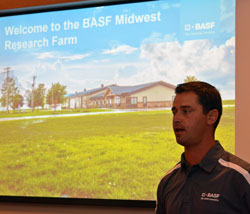 Let’s meet and get to know Bret Lieberman, newly appointed Vice President of North America, New Holland. I just got off the phone with Bret and look forward to meeting him in person next week in New Holland, PA. We started our conversation talking about his background which is extensive and diversified. In fact, today he’s celebrating being with the company for 25 years.
Let’s meet and get to know Bret Lieberman, newly appointed Vice President of North America, New Holland. I just got off the phone with Bret and look forward to meeting him in person next week in New Holland, PA. We started our conversation talking about his background which is extensive and diversified. In fact, today he’s celebrating being with the company for 25 years.
Bret joined the company in 1990 with a position in service parts. Bret continued to expand his experience with various roles in purchasing, human resources, quality management and haytools production. Most recently, Bret has held the position of head of North America Manufacturing, where he has been responsible for all agricultural and construction manufacturing plants since 2009. He’s seen a lot of changes in the brand over the years and he says they’ve all been positive.
Bret is so new on the job (one week) that he’s still waiting on business cards! However, he has moved his office to be closer to his team and is ready to tackle this new chapter in his career. Bret is very optimistic about New Holland’s future and will be getting to meet with many New Holland dealers and the media almost right away.
Listen in to my exclusive interview with Bret to get to know him: [wpaudio url=”http://traffic.libsyn.com/zimmcomm/nh-lieberman-7-9-15.mp3″ text=”Bret Lieberman, New Holland”]









